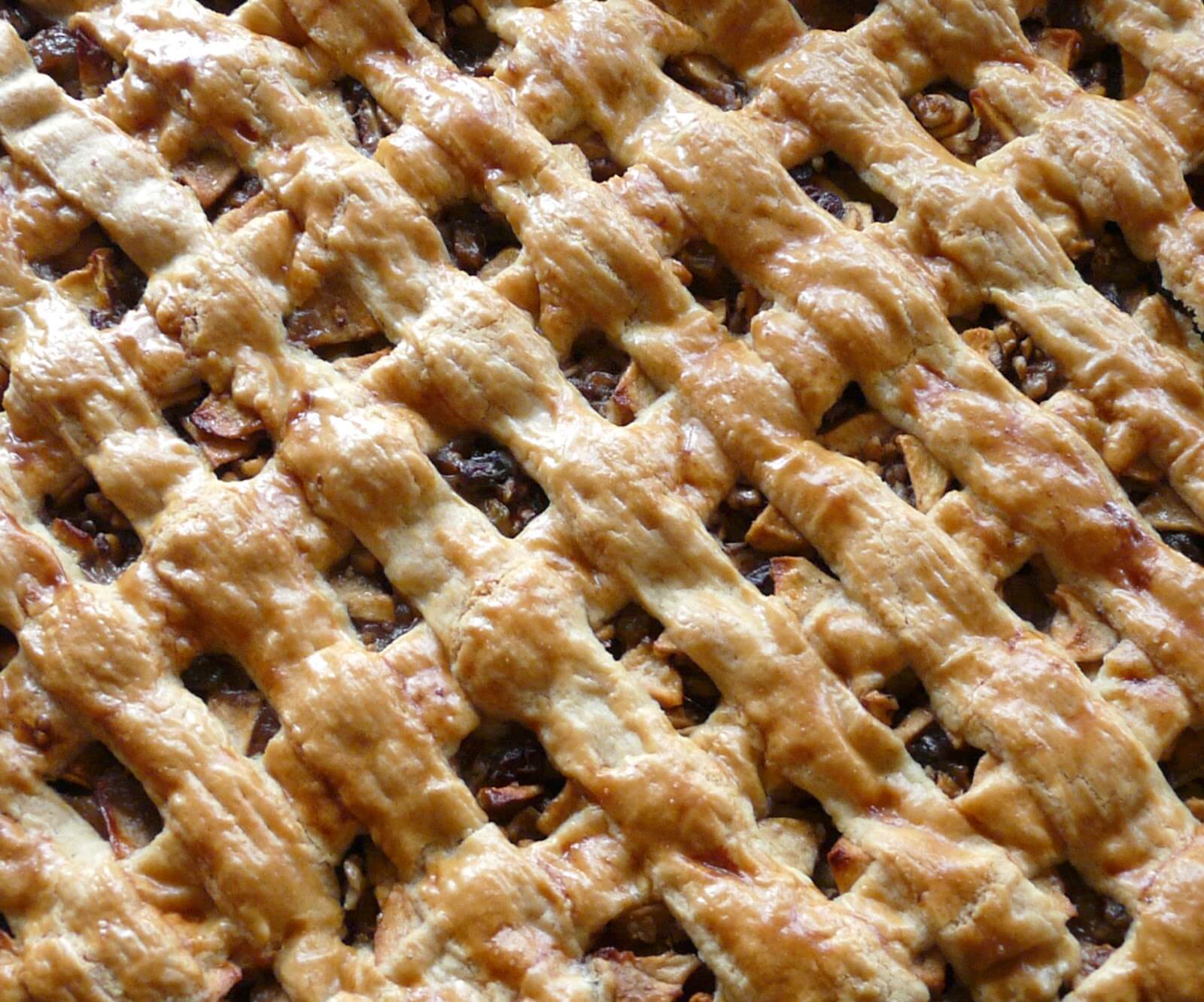Today is National Pie Day, and if you base fact upon popular idioms, then America’s favorite food would be apple pie. It may be true, or it may just be a reflection of the fact that apples are probably the most common fruit in America (and perhaps the world).

The apple has an essential connection to Torah and the Jewish people, but not in the way one might immediately expect. While translations of Genesis often present the forbidden fruit eaten by Eve and then Adam as an apple, the Talmud lists a wide variety of possible fruits that might have grown on the Tree of Knowledge of Good and Bad. None of them was an apple.
It is, however, interesting to note that the apple tree and its fruit are used as biblical metaphors for both God and the Jewish people
The Midrash even compares God to an apple tree: “‘As an apple-tree among the trees of the wood, so is my beloved among the sons’ (Song of Songs 2:3). Why is God compared to an apple-tree? To teach you that just as the apple, though unattractive to the eye, yet possesses good taste and flavor, so is the Holy One, blessed be He… He appeared to the gentiles, yet they would not accept the Torah, which was in their eyes a thing of no value….Israel said: ‘We know the power of the Torah, therefore we will not budge from God and His Torah,’ as it says (Song of Songs 2:3): ‘Under its shadow I delighted to sit, and its fruit was sweet to my taste’” (Exodus Rabbah 17:2).
In the Talmud (Shabbat 88a-b), Rabbi Chama ben Rabbi Chanina asked “Why were the Israelites compared to an apple tree? To teach, just as the fruit of the apple precedes its leaves, so did the Israelites give precedence to “we will do” over “we will hear” at the time of the giving of the Torah.
Copyright © 2014 NJOP. All rights reserved.
Related Posts
Tree Time
Tu b'Shevat, the Jewish New Year for Trees is only two days away! If you would like to…
0 Comments1 Minute
A Tree For The Year
Create your own forest of knowledge by building up a library of Jewish books.
0 Comments1 Minute
 Print This Page
Print This Page